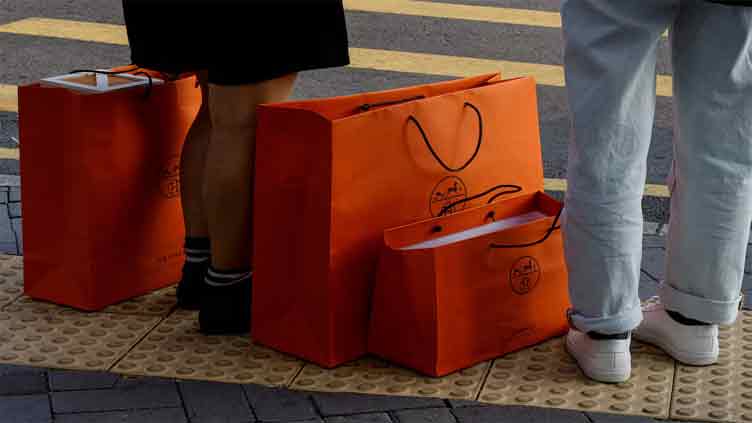China luxury spending downturn amid economic slowdown, but ultrarich are spending more

Business
Deepening a rout has wiped almost $200bn off the sector's value in recent months
PARIS (Reuters) – The prolonged downturn in luxury spending in China is unlikely to reverse this year, analysts and executives warn, deepening a rout which has wiped almost $200 billion off the sector's value in recent months.
Profit warnings from Burberry and Hugo Boss and a 27 per cent drop in quarterly sales in China, Macau and Hong Kong from Richemont this week have reinforced concerns about weakness in China, where middle-class shoppers have cut spending on big-ticket items.
According to consultancy Bain, China accounted for 16pc of 362 billion euros ($393.8bn) of global luxury spending last year.
Read more: Why China could become the luxury industry's next sore spot
But data on Monday showed the world's second largest economy grew much more slowly than expected in the last quarter as a protracted property slump and job insecurity hampered a fragile recovery.
Expectations for the second-quarter earnings season were already low in the luxury sector, but the slew of bleak reports have dashed hopes of a recovery in the second half.
"China is in the repair shop," said Bernstein analysts after a recent visit to the country. Analysts said that Cartier owner Richemont's quarterly sales report on Tuesday had confirmed their fears about lacklustre demand in mainland China.
According to Bain, which in June predicted this year would be the weakest for the global luxury market since the height of the pandemic, China's richest people are avoiding flaunting their wealth in favour of more discreet fashion.
Jitters about China have spooked investors, which has wiped 180 billion euros off the sector since March, according to Reuters' calculations based on LSEG data.
Read more: Inflation, economic slowdown is hitting luxury brands too
A big portion of that – about 85 billion euros – was from LVMH which was overtaken by ASML in June as Europe's second most valuable listed company.
Analysts at JPMorgan said signs of improving business are needed to support expectations for the second half of the year.
Flavio Cereda, co-manager of GAM's luxury brands investment strategy, said he was still awaiting any sign of a pickup in discretionary spending.
"We're not seeing it," he said. The fund owns luxury stocks including Ferrari, Hermes, Richemont, LVMH and Prada.
Sector bellwether LVMH, owner of Louis Vuitton, Dior and Tiffany & Co, will report results on July 23, followed by Kering on July 24 and Hermes on July 25.
According to Visible Alpha consensus estimates, organic second-quarter sales growth at LVMH is expected to be unchanged from the previous quarter and up 3pc year-on-year, while Kering, which is revamping its key label Gucci, is seen posting a 9pc drop in second-quarter sales.
Quarterly reports are also likely to show that luxury brands at the top end of the market are faring better currently, with the ultrawealthy still splashing the cash.
Read more: Widening rich-poor divide means target population for businesses is getting exclusive
Birkin bag maker Hermes, whose handbags sell for more than $10,000, is the only major luxury stock to have gained in the past year. It is expected to post 13pc sales growth for the second quarter.
Italian luxury label Brunello Cucinelli has also defied the industry slowdown. Last week it reported first-half sales growth of nearly 15pc, thanks to its focus on high-end shoppers in China.
PROLONGED DOWNTURN
The luxury sector has relied for years on China's strong appetite for premium goods, with its market tripling in size between 2017 and 2021, according to Bain.
The wealthy and middle class splurged on luxury items from handbags to designer fashion in early 2023 after Beijing lifted stringent COVID-19 lockdowns, but the pent-up buying started to lose steam early last year as the property crisis deepened.
The prolonged downturn may prompt some brands to slow expansion plans in China, though Chanel has said it plans to continue investing in new stores in the mainland, as it is catching up with competing brands.
This summer the Paris Olympics could further weigh on luxury sales as swathes of Europe's fashion capital are cut off from shoppers, delaying prospects for returning positive earnings momentum for luxury companies, said UBS analyst Zuzanna Pusz.
She forecast organic growth from the sector of 4pc this year, with 7pc growth in the second half.


